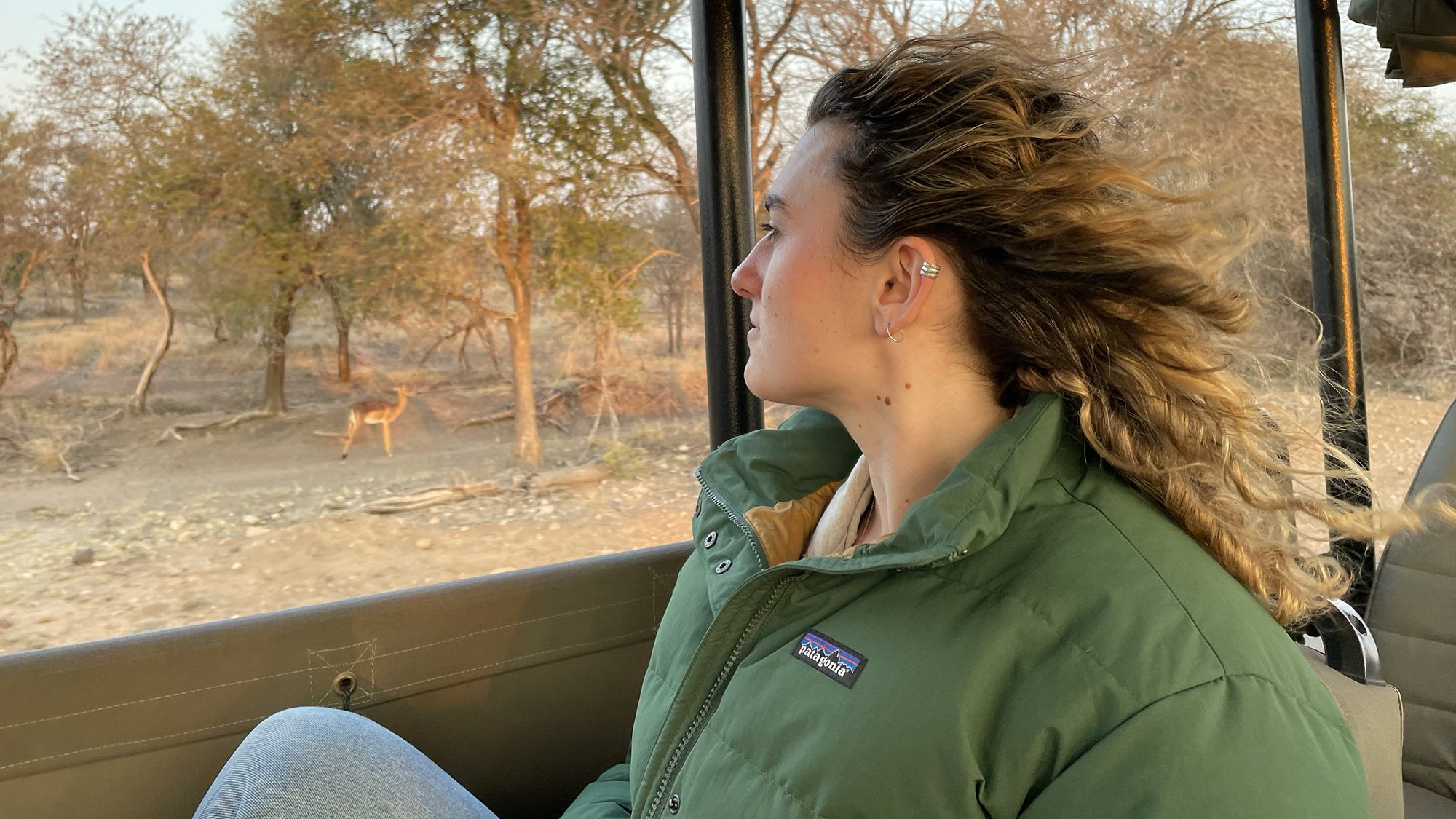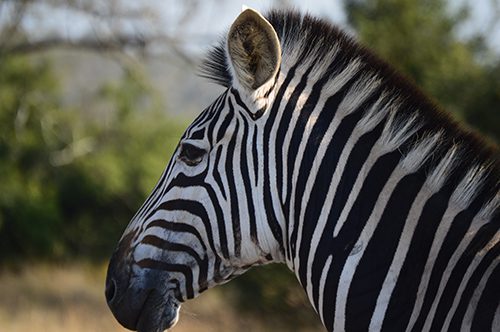Study in the Savanna gave senior ‘grounded confidence’

You can tell Kaya Frawley ’24 has spent a lot of time in the field by the way she talks about the animals she’s been studying – literally. She doesn’t say “ZEE-bruhs,” with a long E, like most others who grew up in New Jersey do; instead, she calls them “ZEH-bruhs” (short E), a common pronunciation in South Africa.
“We’re working with Commonwealth systems over there, so they pronounce it differently,” said Frawley, who has spent the last two summers there doing research.
Frawley, a biology major on the ecology and conservation biology track, spent Summer 2022 in South Africa’s Limpopo Province, learning how habitat and climate affect tick abundance and diversity. The research she did there in Summer 2023 focused on how zebras behave in areas that have been subjected to controlled burns as a way to mitigate potential damage from wildfires.
“Controlled burns are being done more and more often globally and in the U.S.,” Frawley said. “They have to be done, but in concentrated, populated areas, they really affect the habitat.”
Heads up or heads down?
To gauge those effects, the senior set about studying the distribution and behavior of zebra herds across controlled burn areas and unburned areas. She was interested in the zebras’ vigilance behaviors – the time and energy they spent looking for and avoiding predators.

One of the zebras Kaya Frawley ’24 observed in South Africa during her Summer 2023 research trip. / Credit: Kaya Frawley ’24
“In a more frequently burned habitat, the vegetation is more open, and it’s easier to see approaching predators,” explained Frawley’s advisor, Travis Perry, a professor of biology. “And so, vigilance behavior may go down, which would be an energetic savings for the zebra.”
However, a burned habitat will have less vegetation for the herbivores.
“Zebras are hindgut fermenters, which means that they can’t pull a lot of nutrients out of the things they eat,” Frawley said. “They need higher quantities of food and qualities of food.” Higher energy savings from decreased vigilance behavior may compensate for the relative lack of food quantity for the zebras.
Most days, Frawley was on the road by 8 a.m. for a three-hour drive through different areas of Kruger National Park. “Any time I saw a zebra within 150 meters from me, I would stop, note the time and distance from the road and whether there were any other species in the area, and record the GPS location,” she said.
To record the behavioral data, she would make a three-minute audio recording of one zebra in each herd, assigning one of five categories: head-up focused (not chewing, ears pointed forward, alert gaze), head-up unfocused, head down, walking head up, walking head down. She would then do the same to the next zebra until she had observed half of the individuals in the herd.
Now that she has returned, the next step is to go through the recordings and interpret the data.
Life as a scientist
Frawley’s research is part of The Furman Advantage, an educational framework that provides every student an individualized educational pathway and opportunities for high-impact learning experiences.
“It’s highly unusual for undergraduates to do research on this level,” Perry said. “You can teach students the practice of science in a lab, but a tremendous part of the necessary preparation of conservation work in the field is familiarity with the natural systems where these study processes are taking place.”
This was Frawley’s fifth trip to Africa; previous projects included working with desert-adapted elephants in the Namib desert. Over time, she has become adept at working with international teams.
“Navigating that is challenging, especially in a field like conservation,” said Frawley, who plans to go to graduate school and continue working with African wildlife. “It’s extremely political. You have to deal with people with different agendas, and learning to present yourself and communicate globally is crucial to this line of work. But I was really privileged to work with people over the summer that have shown me my worth and value within this field. It gave me a grounded confidence in my life as a scientist.”